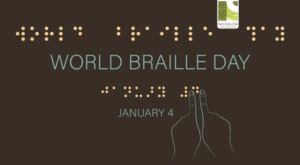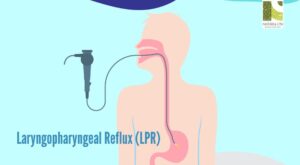Heart Attacks in young adults: A Wake-Up Call for Prevention and Protection

Heart attacks were once considered a problem only for the middle-aged and elderly. But today, doctors across the world – including in India – are witnessing a worrying rise in heart attacks among young adults. It’s shocking, but real. And the causes are not always what you’d expect.
This blog aims to break down what’s behind this trend, what symptoms to watch out for, and most importantly, what medical precautions we can take to protect our young adult.
Can Young Adults Really Get Heart Attacks?
Yes. While it’s still rare, heart attacks in young adults are becoming more frequent. Cases have been reported due to genetic conditions, undiagnosed heart defects, sedentary lifestyles, and even after extreme emotional or physical stress.
In India, post-COVID trends and changing food and lifestyle habits have added more risk to an already vulnerable age group.
What Causes Heart Attacks in young adults?
Here are some of the most common medical reasons:
- Congenital Heart Defects
Some children are born with abnormalities in the structure or function of the heart that go undiagnosed until something serious happens. - Myocarditis
An inflammation of the heart muscle, often caused by viral infections. This can be post-COVID as well. - Familial Hypercholesterolemia
A genetic condition that leads to extremely high cholesterol levels at a young age, clogging arteries early in life. - Drug or Substance Abuse
The use of recreational drugs, steroids, or even energy drinks in excess can put enormous strain on a young heart. - Obesity and Inactivity
A sedentary lifestyle and high junk food intake contribute to metabolic issues like diabetes and high blood pressure — risk factors even in teens. - Undiagnosed Diabetes or Hypertension
Many adults, especially in urban India, develop pre-diabetic or hypertensive conditions that go unnoticed. - Excessive Physical Strain
Intense workouts or sudden unaccustomed exercise (especially with underlying undiagnosed heart issues) can trigger cardiac events.
Warning Signs That Should Not Be Ignored
young adults won’t always show the “classic” signs of a heart attack. But watch out for:
- Chest pain or tightness
- Sudden fatigue or weakness
- Dizziness or fainting
- Palpitations or irregular heartbeat
- Shortness of breath even at rest
- Pain in jaw, left arm, or back
- Nausea or unexplained sweating
If in doubt, never delay. Seek medical help immediately.
Precautions to Protect young adults from Cardiac Risk
Here are medical and lifestyle steps every parent and teen should consider:
1. Regular Screening
- ECG and Echocardiogram if there is a family history of heart disease
- Annual blood pressure and cholesterol checks
- Screening for Type 2 Diabetes
- Monitor BMI and waist circumference=2. Know Your Family History
If heart disease runs in your family, discuss it with your pediatrician or cardiologist early.
3. Encourage Active Lifestyle
- At least 60 minutes of moderate physical activity daily.
- Discourage long screen hours and sedentary routines.
4. Educate on Safe Exercise
- Teens involved in heavy sports should undergo a sports fitness checkup.
- Avoid sudden intense physical exertion without warming up.
5. Healthy Eating Habits
- Reduce ultra-processed food and sugar
- Include heart-healthy foods like fruits, nuts, whole grains, and greens
- Limit intake of energy drinks and caffeinated sodas
6. Manage Stress and Sleep
- Teach techniques like breathing, yoga, and mindfulness.
- Teens need 8–10 hours of sleep for heart and brain health.
7. Avoid Smoking, Vaping & Drug Use
- Even occasional use of tobacco or recreational drugs can be dangerous for heart health.
When to See a Cardiologist?
If your teen has:
- A family history of sudden cardiac death
- Unexplained fainting spells
- Chest pain on exertion
- Diagnosed metabolic issues like high BP or cholesterol
…it’s best to consult a pediatric cardiologist and do a thorough cardiac assessment.
It’s heartbreaking to even imagine a young adult having a heart attack — but it’s a reality we cannot ignore. Prevention begins with awareness, routine screening, and healthy habits at home.
Let’s keep conversations open. Let’s teach our children to listen to their bodies. And most importantly, let’s not dismiss symptoms just because “they’re too young.”
For more such awareness content and expert-led advice, stay connected with Nellikka.life on Instagram, YouTube, and Facebook. Together, let’s safeguard the heartbeats of our future.
References :
1. The Case of Myocardial Infarction in a Fifteen-Year-Old Adolescent Caused by Toxic Substances
2. A case of myocardial infarction in a teenager with new diagnosis of granulomatosis with polyangiitis
3. Acute Myocardial Infarction in a 17-year-old High‑school Girl
4.Acute Myocardial Infarction in a 13-Year-Old Adolescent with Chronic Graft-Versus-Host Disease: A Case Report
5. Myocardial Infarction in Young Individuals: A Review Article





